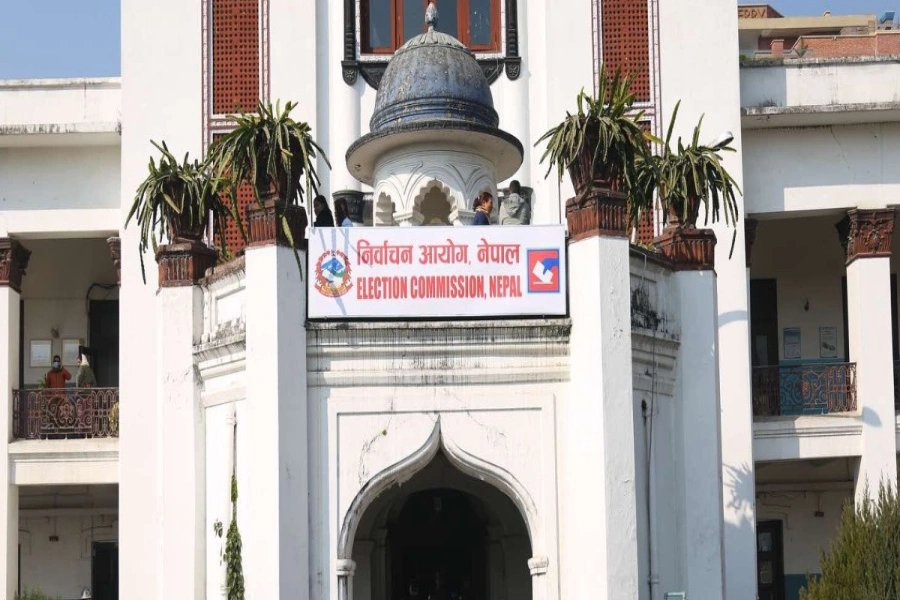The ousted Grammys CEO fired back at the Recording Academy on Tuesday, alleging that she was removed after complaining about sexual harassment and pay disparities and for calling out conflicts of interest in the nomination process for music’s most prestigious awards.
Lawyers for Deborah Dugan, who was placed on administrative leave last week after six months in the job, filed the discrimination complaint with the Equal Employment Opportunity Commission just five days before the Grammy Awards. She alleged she was sexually harassed by the academy’s general counsel, Joel Katz, who late Tuesday denied her account.
Dugan detailed the harassment and other issues in an email to an academy human resources executive on Dec. 22, according to the complaint.
The complaint also stated that Dugan was paid less than former academy CEO Neil Portnow, who left the post last year, and that she was also subject to retaliation for refusing to hire Portnow as a consultant for nearly half his former salary.
Portnow had been criticized for saying women need to “step up” when asked backstage at the 2018 show why only two female acts won awards during the live telecast. Portnow called his comments a “poor choice of words” and later said he chose not to seek an extension on his contract.
A filing with the Internal Revenue Service shows that Portnow was paid $1.74 million in 2016. Dugan said she was pressured to hire him as a consultant for $750,000 annually. Dugan’s Grammys compensation was not revealed in Tuesday’s filing. She earned nearly $537,000 in 2016 in her previous job as CEO of Bono’s (RED) charity organization.
Last week, the academy said Dugan was put on leave following an allegation of misconduct by a senior leader at the organization.
On Tuesday, the academy said the issue was a complaint by a female employee that Dugan had been “abusive” and created a “toxic and intolerable” work environment. Dugan’s attorneys called that accusation false, saying there was no mistreatment and identifying the employee as the executive assistant she inherited from Portnow.
Ex-Grammys CEO says rape allegation ‘false and outrageous’

In her Dec. 22 email, Dugan called the academy “a boys’ club.”
While trying to resolve a lawsuit against the academy, Dugan said one of the claimants characterized the organization’s leadership as “a boys’ club” that “put their financial interest above the mission.”
“At the time, I didn’t want to believe it,” said Dugan. “But now after 5 months of being exposed to the behavior and circumstances outlined here, I have come to suspect she is right.”
The academy said in a statement that it “immediately launched independent investigations to review both Ms. Dugan’s potential misconduct and her subsequent allegations. Both of these investigations remain ongoing.”
Dugan, according to the statement, was placed on administrative leave after offering to step down and demanding $22 million from the Academy, which is a not-for-profit organization.
“Our loyalty will always be to the 21,000 members of the Recording Academy. We regret that music’s biggest night is being stolen from them by Ms. Dugan’s actions, and we are working to resolve the matter as quickly as possible.”
An email from Katz said the attorney was out sick. Katz’s firm said it had not yet seen the complaint and could not comment on its allegations.
In the complaint, Dugan alleged that in May 2019, when she had accepted the CEO position but had not begun her work, she had dinner with Katz, the academy’s general counsel, alone at his request in Laguna Niguel, California, on the eve of a meeting of the academy board.
There, Katz acted “extremely inappropriately,” according to the complaint, calling Dugan “baby” and making “an obvious and unwelcome attempt to ‘woo’ Ms. Dugan into a romantic relationship.”
Dugan, the complaint said, made it clear she wasn’t interested and was in a relationship, but he still attempted to kiss her at the end of the night. She “quickly turned away, repulsed.” Katz continued the harassment in subsequent interactions, the complaint alleged.
Katz “categorically and emphatically denies her version of that evening,” his attorney, Howard Weitzman, said in a statement. The statement said the dinner occured 2 1/2 months before Dugan started as CEO.
“Mr. Katz believed they had a productive and professional meeting in a restaurant where a number of members of the board of trustees of the academy, and others, were dining,” Weitzman’s statement read.
Dugan also contends Katz and his firm were paid inappropriately by the academy, and that his role representing both the academy and artists who are up for Grammys was a conflict of interest.
Katz’s firm said the harassment allegations against the attorney were not known until Tuesday, but that the firm would cooperate with all investigations into the matter.
Tuesday’s academy statement alleged Dugan raised her concerns only after being accused of misconduct. Dugan’s attorneys denied that, saying in a statement that she had spoken on those issues throughout her tenure.
The complaint was also critical of the Grammys voting process, specifically its use of nomination committees to select the final list of nominees, which can range from five to eight depending on the category.
“Rather than promoting a transparent nomination process, the Board has decided to shroud the process in secrecy and ultimately controls, in large part, who is nominated for Grammy Awards,” the complaint read.
For the top four awards, committees select the final nominees from the top 20 contenders, based off ballots from its voting members. But the complaint said the committee members sometimes include artists who did not make it in the top 20 because of their personal or business relationships with those artists.
“This year, 30 artists that were not selected by the membership were added to the possible nomination list,” the complaint read.
The complaint also claimed that one of the song-of-the-year nominees — who placed 18th in the top 20 — sat on the committee deciding the song-of-the-year nominees and is represented by a member of the academy board.






































